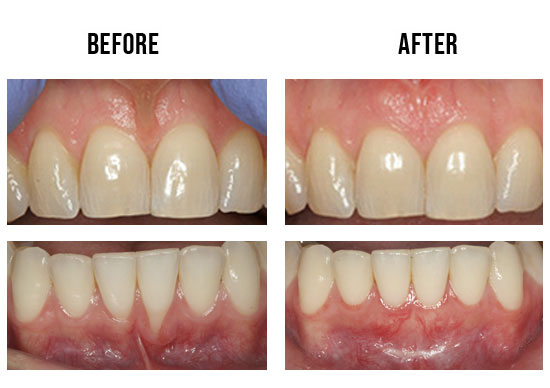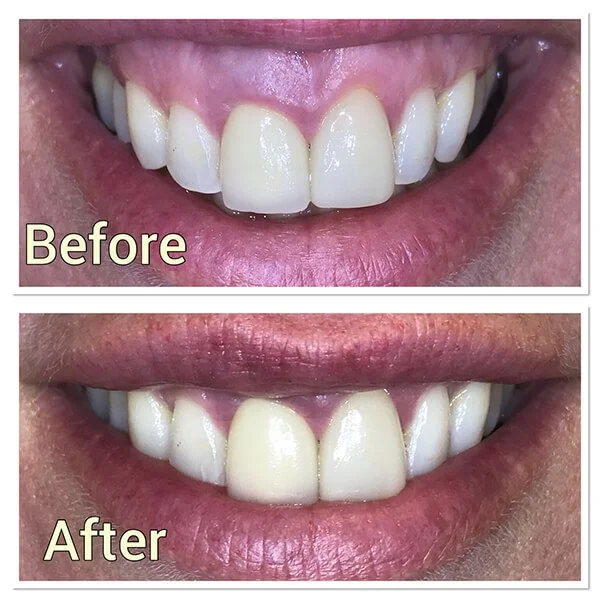Frenectomy Ruined My Smile: Frenectomy Reviews & Complications
In recent years, frenectomy procedures have gained popularity for their ability to address various oral and dental issues. However, some individuals have raised concerns about the impact of frenectomies on their smile aesthetics.
Table of Contents
What is a Frenectomy and Why is it Performed?
A frenectomy is a surgical procedure that involves the removal or modification of the frenulum, a small fold of tissue connecting the lips to the gums or the tongue to the floor of the mouth. It is performed for medical and dental reasons such as correcting tongue-tie (ankyloglossia) and addressing orthodontic or functional concerns.
Can a Frenectomy Impact Smile Aesthetics?
While frenectomies are generally considered safe and effective, some individuals have reported changes in their smile aesthetics following the procedure. Common concerns include excessive scarring, altered lip movement, or changes in gum appearance.
Real-life Experiences
Here are some real-life experiences on “frenectomy ruined my smile” shared by people :
- “I had a frenectomy when I was 12 years old to correct a tongue-tied condition. The surgery was successful in correcting the tongue-tie, but it also caused my upper lip to become permanently retracted. This has made it difficult for me to smile naturally, and I’m self-conscious about my smile. I’ve considered having corrective surgery, but I’m worried about the risks. – Sarah J.”
- “I had a frenectomy when I was 16 years old to correct a gummy smile. The surgery was successful in reducing the gum exposure, but it also caused my upper lip to become permanently numb. This has made it difficult for me to control my lip when I smile, and I’ve been told that my smile looks unnatural. I’m not happy with the results of the surgery, and I’m considering having corrective surgery. – John D.”
- “I had a frenectomy when I was 20 years old to correct a diastema (gap between my two front teeth). The surgery was successful in closing the gap, but it also caused my upper lip to become permanently asymmetrical. This has made it difficult for me to smile naturally, and I’m self-conscious about my smile. I’ve considered having corrective surgery, but I’m worried about the risks. – Mary S.”
These are just a few examples of real-life experiences on “frenectomy ruined my smile.” It’s important to note that not everyone who has a frenectomy experiences negative side effects. However, it’s also important to be aware of the potential risks before undergoing surgery. If you’re considering having a frenectomy, be sure to talk to your dentist or oral surgeon about the risks and benefits.
Common and Severe Side Effects of Frenectomy
Frenectomy is a surgical procedure that involves cutting the frenum, a piece of tissue that connects the tongue or lip to the gums. It is often performed to correct tongue-tie, a condition in which the frenum is too short or tight, restricting the movement of the tongue or lip.
Frenectomy is a relatively safe procedure, but some potential side effects can occur. The most common side effects are:
- Bleeding: Bleeding is usually mild and stops on its own. However, in some cases, it may be necessary to apply pressure or stitches to stop the bleeding.
- Infection: Infection is a rare complication of frenectomy. If an infection does occur, it can be treated with antibiotics.
- Scarring: Scarring is another rare complication of frenectomy. The scar may be visible, but it is usually small and fades over time.
- Damage to nerves or salivary glands: In rare cases, frenectomy can damage nerves or salivary glands. This can lead to numbness, tingling, or pain in the tongue or lip.
More severe side effects of frenectomy are less common, but they can occur. These include:
- Speech problems: In some cases, frenectomy can lead to speech problems. This is because the tongue may not be able to move as freely after the surgery.
- Gum recession: In some cases, frenectomy can lead to gum recession. This is because the frenum helps to keep the gums attached to the teeth. After the frenum is cut, the gums may not be as tightly attached to the teeth, which can lead to recession.
- Regrowth of the frenum: In some cases, the frenum can regrow after the frenectomy. This is usually a minor problem, but it may require another surgery to remove the regrown frenum.
If you are considering having a frenectomy, it is important to talk to your dentist or oral surgeon about the risks and benefits of the procedure. They can help you decide if frenectomy is the right treatment for you.

Other Potential Risks Associated with Frenectomy
It’s important to be aware of the potential risks associated with any surgical procedure, including frenectomies. These risks may include bleeding, infection, delayed healing, nerve damage, or undesirable changes in smile aesthetics.
Recovery and Post-operative Discomfort
Following a frenectomy, patients may experience discomfort, swelling, and mild pain. Proper post-operative care and adherence to the dentist’s instructions can help promote optimal healing.
Impact of Frenectomy on Speech
Frenectomies are often performed to improve speech in cases of tongue tie. Although there may be temporary speech difficulties after the procedure, proper healing and speech therapy can usually address these concerns.
Addressing Dissatisfaction with Frenectomy Results
If a patient is dissatisfied with the outcome of their frenectomy and believes it has negatively impacted their smile aesthetics, it’s vital to communicate their concerns with their oral surgeon or dentist. Seeking a second opinion from another qualified professional is also recommended.
Conclusion:
A frenectomy is a surgical procedure with the potential to address various oral and dental concerns. While most patients experience positive outcomes, it is essential to be aware of the potential risks and impacts on smile aesthetics. By seeking qualified professionals, exploring alternatives, and addressing concerns with experts, patients can make informed decisions about their oral health and smile aesthetics.
FAQs About Frenectomy Ruined My Smile
Can a frenectomy cause permanent changes in smile appearance?
While most frenectomy procedures aim to improve oral and dental issues, there have been instances where complications from the procedure led to permanent changes in smile appearance. Excessive scarring or alterations in lip movement may impact the aesthetics of one’s smile.
Are there any home remedies to address smile aesthetics after a frenectomy?
Home remedies may help promote healing after a frenectomy, but it’s essential to follow the post-operative care instructions provided by the dental professional. If concerns about smile aesthetics arise, it’s best to consult with a qualified oral surgeon or dentist.
What is the average cost of a frenectomy procedure?
The cost of a frenectomy can vary depending on factors such as the complexity of the procedure, the geographical location, and the dental professional’s experience. It’s recommended to obtain quotes from different providers for a more accurate estimate.
How long does it take to heal after a frenectomy?
The healing time after a frenectomy can vary from person to person. Generally, it may take a few days to a couple of weeks for the initial healing to occur. However, complete recovery may take several weeks.
Can a frenectomy worsen dental alignment?
In some cases, a frenectomy may have an impact on dental alignment, especially if the procedure is not performed correctly. It’s crucial to discuss concerns about dental alignment with the dental professional before the procedure.
Are there any specific post-operative care instructions for smile aesthetics?
Post-operative care instructions typically focus on promoting healing and preventing complications. However, specific instructions related to smile aesthetics may vary depending on individual cases.
Can laser frenectomy reduce the risk of aesthetic complications?
Laser frenectomy is considered a less invasive option that may reduce bleeding and promote faster healing. While it might lower the risk of certain complications, there is still a possibility of aesthetic concerns after any type of frenectomy.
Can I undergo cosmetic procedures after a frenectomy to improve my smile?
Depending on individual circumstances and the type of frenectomy performed, cosmetic procedures may be considered to enhance smile aesthetics. However, it’s essential to consult with both the oral surgeon and cosmetic dentist to determine the best approach.
What percentage of people report negative changes in their smile after a frenectomy?
The percentage of individuals reporting negative changes in their smile after a frenectomy is not well-documented. Each case is unique, and it is essential to weigh potential risks and benefits before undergoing the procedure.
Can a frenectomy affect lip movement and symmetry?
Yes, in some cases, a frenectomy may impact lip movement and symmetry, especially if the procedure results in excessive scarring or alters the natural positioning of the frenulum.

